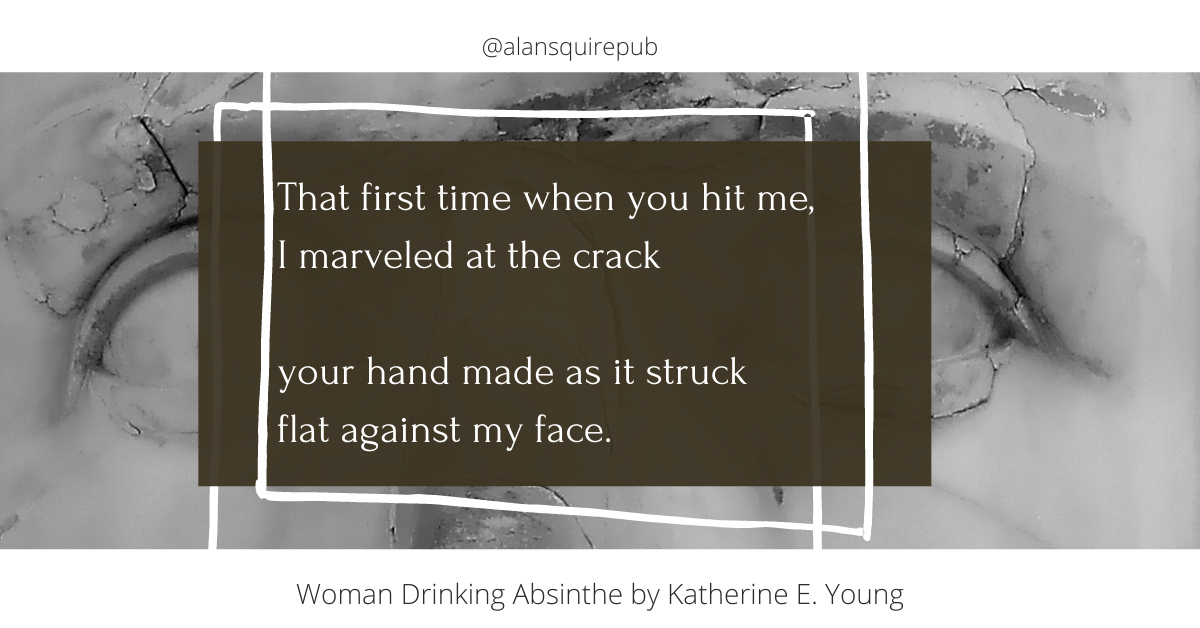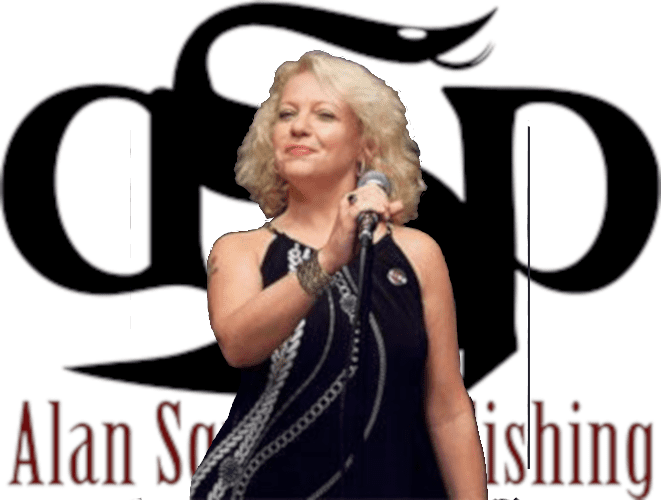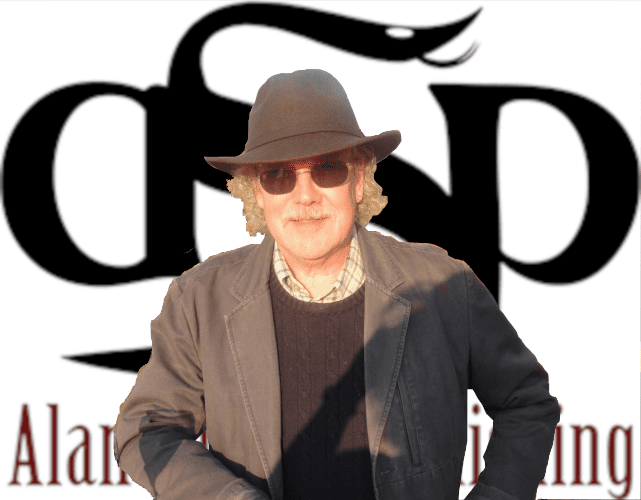WOMAN DRINKING ABSINTHE Analyzed by Billy Mills
Former Guardian Literary Journalist, Billy Mills, analyzes the conception of love in Katherine E. Young's new collection.

"Young’s core subject is love, but there’s nothing redemptive or particularly healing about its manifestations," writes Billy Mills in his analysis of Young's Woman Drinking Absinthe. Elsewhere he compares the different manifestations of this theme to coeval poets Christopher Jane Corkery and James Roome.
Mills analysis is fitting for Young's work which comes from a deeply literary place and is steeped in evocative allusion. Mills places WDA alongside the likes of Pound and Eliot in his thinking. Like these poets, Young uses unorthodox and historically informed forms and diction in her poetry.
An excerpt of Mills' analysis follows:
"The fourth (of five) sections of Katherine E. Young’s Woman Drinking Absinthe is a single sequence, ‘Place of Peace’ that takes off from a visit to the Civil War memorial at Shiloh National Military Park. The fourth section of the sequence opens with he line ‘Who doesn’t desire to be mesmerized by love?’ and ends ‘once more I fear the shadow of his hand.’ These lines could be said to serve as the twin poles of the entire collection.
For Young’s core subject is love, but there’s nothing redemptive or particularly healing about its manifestations."
The poems in Katherine E. Young’s Woman Drinking Absinthe concern themselves with transgressions. Lust, betrayal, guilt, redemption: Young employs fairy tales, opera, Impressionism, Japonisme, Euclidean geometry, Greek tragedy, wine, figs, and a little black magic to weave a tapestry that’s as old as the hills and as fresh as today’s headlines.
Featured Audio: “Last Night I Tried to Walk You out of My Body” a poem by Rose Solari
Rose Solari reads “Last Night I Tried to Walk You out of My Body” Rose’s voice is as much a part of the journey as the text. Her understanding of […]
Featured Audio: “The Nearest Thing to Perfection,” a reading by James J. Patterson
James J. Patterson reads “The Nearest Thing to Perfection” “One of the welcome treats from the emergence of James J. Patterson’s fiction is his penchant for setting his stories in […]
Featured Audio: “Chaos Theory,” a poem by Elizabeth Hazen
Elizabeth Hazen reads “Chaos Theory” “She harnesses the atoms and molecules of poetry like a Tesla coil, attuned to the science of our everyday lives, and leaves us sadder, wiser, […]


